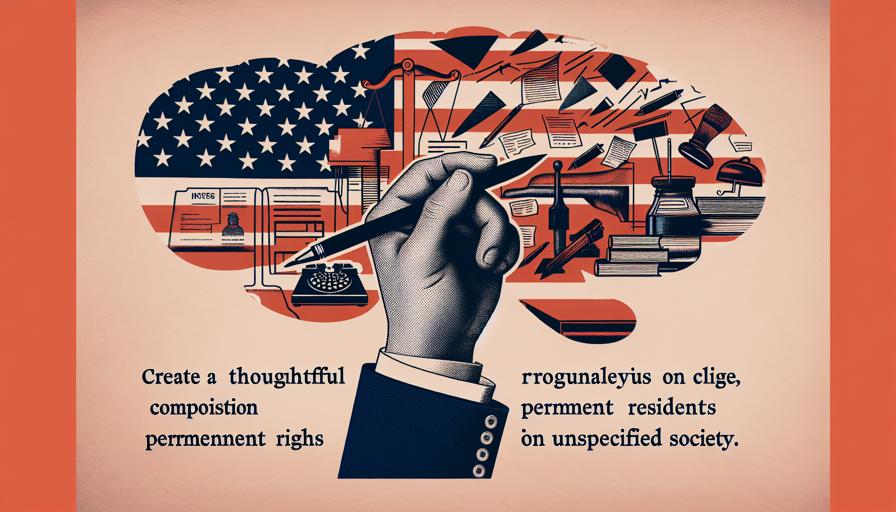The recent arrest of Mahmoud Khalil, a green card holder and former Columbia University student involved in pro-Palestinian protests, has ignited a significant debate regarding the rights of lawful permanent residents in the United States. Khalil was apprehended by Immigration and Customs Enforcement (ICE) agents on March 8 in New York and is currently detained in Louisiana. Remarkably, he has not been charged with any crime, prompting concerns about the government’s use of foreign policy grounds to justify deportation under the Trump administration.
As an immigration law expert, David Leopold, explained, a green card permits individuals to live and work in the U.S. indefinitely, yet it does come with the caveat that permanent residents can be deported under certain conditions. Most commonly, this occurs if the individual is convicted of a crime or accused of immigration fraud. However, Khalil’s situation is notably different, as he is not facing any criminal charges.
The Trump administration's assertion that Khalil poses a foreign policy threat because of alleged ‘pro-Hamas’ activity raises serious implications for the First Amendment rights of protestors. Many view his arrest as a governmental overreach aimed at stifling lawful dissent, citing Khalil's attorney, Amy Greer, who described the detention as an effort to silence free speech.
The unfolding protests, particularly the significant demonstration at Trump Tower organized by the activist group Jewish Voice for Peace, highlight widespread discontent over Khalil’s arrest. Demonstrators, including prominent figures like actress Debra Winger, called for the immediate release of Khalil, arguing that the arrest symbolizes a broader attack on civil liberties and freedom of expression in the U.S.
Supporters of Khalil argue that the legal justification for his detention is precarious at best. Eager to defend their rights, they point to the Constitutional protections afforded to all individuals within U.S. borders, including green card holders, which entitle them to due process. As highlighted by Elora Mukherjee, a Columbia Law School professor, lawful permanent residents cannot lose their status without due process, even under claims of national security.
Amidst this controversy, the overarching implications of Khalil’s arrest are substantial: it raises critical questions about how far the government can go in using immigration law as a tool for political ends. The use of rarely invoked provisions of the Immigration and Nationality Act as grounds for Khalil’s potential deportation reflects a troubling trend where the fear of foreign policy consequences could be wielded to suppress specific groups' rights and protests.
This situation will continue to evolve as Khalil’s case unfolds in court, with a federal judge currently blocking his deportation pending further legal proceedings. It is essential to remain vigilant and aware of how such cases can have lasting effects on free speech and the rights of residents in the United States.
The report and analysis are based on data reviewed by artificial intelligence and provide a comprehensive overview of the implications of Khalil's arrest on civil rights and immigration policy in the U.S.
AD
AD
AD
AD
Bias Analysis
Bias Score:
0/100
Neutral
Biased
This news has been analyzed from 0 different sources.
Key Questions About This Article




